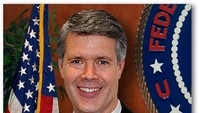FCC liberates TV in apartment complexes

The FCC has prohibited exclusive video service contracts in apartment buildings and other real estate developments. Building owners, in most cases, can no longer restrict residents to a single pay-TV provider.
Last week’s order prohibits the enforcement or execution of existing exclusivity clauses and bans any new ones to section 628 of the Communications Act. Simultaneously, the commission opened a rulemaking to seek comment on exclusivity clauses by DBS providers, private cable operators and other service providers not subject to Section 628.
“A person living in a multiple dwelling unit (MDU) property should not be shackled to one video provider,” said FCC commissioner Jonathan Adelstein. “Too often, the landlord gets paid off while the tenants are stuck with no choice or bad service. People want competitive offerings, and today we are delivering them.”
The FCC estimated that about 30 percent of Americans live in what are called multiple dwelling units. The new rules are an important boost to telephone companies like AT&T and Verizon Communications who are starting to offer TV services to residents in apartment buildings.
However, the phone companies will also be subject to the new rules. Seventeen states and Washington, D.C., already ban exclusive TV service contracts.
FCC commissioner Michael Copps expressed concern that the rules temporarily favor certain companies not subject to Section 628. “Happily we will be addressing these competitive parity issues in the next six months,” he said. “In the meantime, I would caution any MVPDs (multichannel video programming distribution providers) seeking to take advantage of this regulatory lag time that they do so at their own risk.”
Though all five FCC members supported the rule change, commissioner Robert McDowell worried that the agency was on shaky legal ground in applying the rules to existing contracts. He noted that in 2003, the FCC encouraged such agreements as an incentive for cable operators to wire older buildings.
The professional video industry's #1 source for news, trends and product and tech information. Sign up below.
Reaction from the cable industry was fierce. Dan Brenner, senior vice president for law and regulatory policy for the National Cable and Telecommunications Association, called the FCC action “legally suspect” and inconsistent in its application.
Sena Fitzmaurice, a Comcast spokesperson, said “consumers in apartment buildings and condos across the nation received a blow today from the action taken by the FCC. The result of this decision is likely to be higher prices for services and years of litigation and uncertainty for consumers. The significant concessions building owners have been able to bargain for on behalf of their residents will be lost.”
